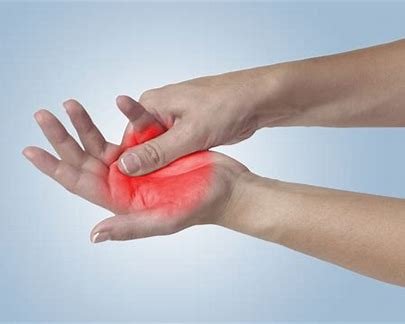Medtronic announces FDA approval of spinal cord stimulation therapy
25 January 2022 | Tuesday | News

Image Source : Public Domain
Studies show significant reduction in pain and improved quality of life for patients treated with spinal cord stimulation compared to medication management alone
Medtronic , a global leader in healthcare technology, announced it has received U.S. Food and Drug Administration approval of its Intellis™ rechargeable neurostimulator and Vanta™ recharge-free neurostimulator for the treatment of chronic pain associated with diabetic peripheral neuropathy (DPN).
DPN is a debilitating and progressive neurological disorder that affects approximately 30% of people with diabetes, significantly impacting both quality of life and functional ability, including mood, social relationships, and sleep.1 DPN occurs when high blood sugar (glucose) damages nerves in the body, most often in the legs and feet, leading to numbness and burning or stabbing pain. In some patients, the pain can become progressively worse and excruciating. Patients may be treated with medications, but they are often only partially effective and can result in serious side effects.
This new indication offers patients with DPN access to Medtronic's industry-leading spinal cord stimulation (SCS) portfolio of rechargeable and recharge-free platforms, which include multiple programming options to personalize patient therapy, unrestricted MRI access2, unrivaled battery chemistry and performance, and the Medtronic TYRX™ Neuro Absorbable Antibacterial Envelope. The surgical management of diabetic patients can be a challenge for health care providers as they often have additional risk factors and are at greater risk for infection.3 The TYRX™ antibacterial surgical mesh envelope has been shown to stabilize device placement and help reduce infection by over 60%.4-10 Clinicians may also advise patients to take advantage of CareGuidePro™, which serves as a virtual guide for patients throughout their SCS journey.
Independent studies show patients with DPN achieve significant pain relief when treated with SCS compared to conventional treatments alone.11,12 Overall, 70% of patients receiving treatment with SCS experienced relief of their pain symptoms compared to 6% of patients receiving only conventional treatments. Those treated with SCS experienced a 53% average reduction in pain, compared to 0% among patients receiving only conventional treatments. A recent meta-analysis showed a significant improvement in health-related quality of life in patients treated with SCS compared to those receiving only conventional treatments.13 A long-term analysis of patients treated in one of the studies using Medtronic SCS technology showed 80% of patients treated with SCS continued to use their devices at five years to treat their pain.14
"DPN is a significant challenge for patients with diabetes, leading to disability and a diminished quality of life," said Charlie Covert, vice president and general manager, Pain Therapies within the Neuromodulation business, which is part of the Neuroscience Portfolio at Medtronic. "This new indication enables us to apply Medtronic's more than 40 years of proven SCS experience, as well as the company's deep diabetes expertise, to deliver better care to even greater numbers of diabetes patients."
Medtronic estimates that up to 800,000 US patients suffer from moderate to severe DPN symptoms that are not resolved through conventional medical management approaches, like drugs. The company views these patients as potential candidates for SCS, representing an approximate $1.8 billion annual market opportunity. Today, Medtronic estimates that the US market revenue for SCS treatment of chronic pain associated with DPN, sometimes also referred to as Painful Diabetic Neuropathy (PDN), is approximately $70 million, and the company expects market revenue to grow to $300 million by fiscal year 2026.
Most Read
- How Does GLP-1 Work?
- Innovations In Magnetic Resonance Imaging Introduced By United Imaging
- Management of Relapsed/Refractory Multiple Myeloma
- 2025 Drug Approvals, Decoded: What Every Biopharma Leader Needs to Know
- BioPharma Manufacturing Resilience: Lessons From Capacity Expansion and Supply Chain Resets from 2025
- APAC Biopharma Review 2025: Innovation, Investment, and Influence on the Global Stage
- Top 25 Biotech Innovations Redefining Health And Planet In 2025
- The New AI Gold Rush: Western Pharma’s Billion-Dollar Bet on Chinese Biotech
- Single-Use Systems Are Rewiring Biopharma Manufacturing
- The State of Biotech and Life Science Jobs in Asia Pacific – 2025
- Asia-Pacific Leads the Charge: Latest Global BioSupplier Technologies of 2025
- Invisible Threats, Visible Risks: How the Nitrosamine Crisis Reshaped Asia’s Pharmaceutical Quality Landscape
Bio Jobs
- Sanofi Turns The Page As Belén Garijo Steps In And Paul Hudson Steps Out
- Global Survey Reveals Nearly 40% of Employees Facing Fertility Challenges Consider Leaving Their Jobs
- BioMed X and AbbVie Begin Global Search for Bold Neuroscience Talent To Decode the Biology of Anhedonia
- Thermo Fisher Expands Bengaluru R&D Centre to Advance Antibody Innovation and Strengthen India’s Life Sciences Ecosystem
- Accord Plasma (Intas Group) Acquires Prothya Biosolutions to Expand Global Plasma Capabilities
- ACG Announces $200 Million Investment to Establish First U.S. Capsule Manufacturing Facility in Atlanta
- AstraZeneca Invests $4.5 Billion to Build Advanced Manufacturing Facility in Virginia, Expanding U.S. Medicine Production
News











